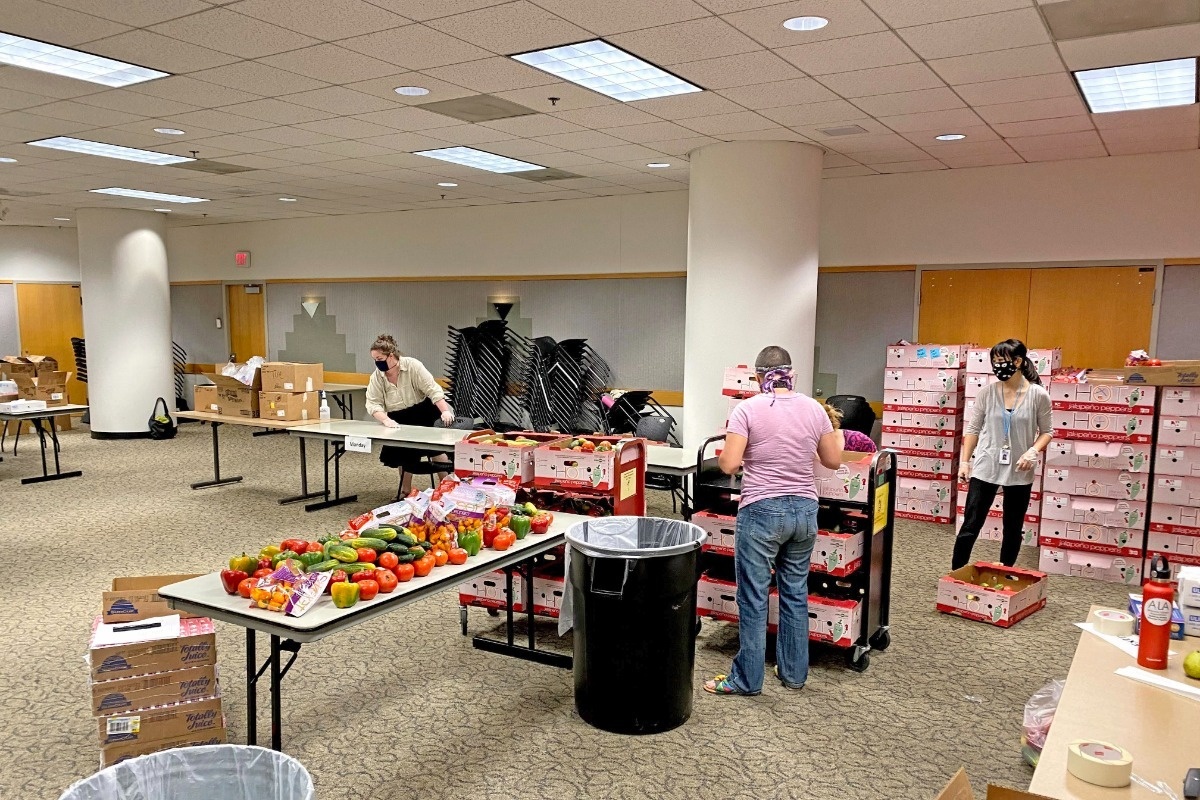In Pima County, Arizona, Libraries Offer More Than Books
From food boxes to COVID-19 test kits, libraries provide health services to the community
Posted on Apr 27, 2022

As a branch manager in one of the public libraries in Pima County, AZ, much of Em DeMeester-Lane's time is spent connecting community members to vital resources. On any given day, DeMeester-Lane will offer guidance on job training, share information on utility, rental, and food assistance, or direct visitors to immigration and refugee services. Sometimes, DeMeester-Lane and his colleagues will help visitors find a shower and a place to sleep. As community hubs, libraries have always offered safe, inclusive spaces for everyone. During COVID-19, this refuge became more important than ever.
“We see ourselves as active participants in communities,” says DeMeester-Lane, a branch manager at the Joel D. Valdez Main Library. “You are more likely to know where your local library is than a health center. People come to us because they know us, and in turn we can offer a gateway to better health access.”
When COVID-19 hit, libraries across the county stepped up to meet the needs of their communities. Working side-by-side with the Pima County Health Department––which receives support and technical advising on COVID-19 response and recovery from Partners In Health United States––the county’s library workers quickly adapted traditional programs, while also expanding services to respond to the impacts of the pandemic. Embedded within the health department as a trusted advisor, PIH-US has been supporting the Pima County Health Department’s overall pandemic response, while also partnering on a broader health equity agenda.
With buildings closed to the public, library meeting rooms were converted into food hubs, as library staff distributed boxed food to individuals and families lined up in their cars. Between April 2020 and August 2021, library branches distributed over 200,000 produce boxes, snacks, and meals. When vaccines became available, library employees set up a hotline to help residents navigate complex scheduling, registration processes, and other technological issues. Library staff handled over 42,000 phone calls for individuals seeking assistance with vaccine registration and scheduling. And last October, with rapid tests either unavailable or unaffordable amid a national surge in COVID-19 cases, the health department began distributing free rapid test kits at local libraries. By the end of December 2021, over 35,000 COVID-19 test kits had been handed out––the vast majority of which went to people who experience homelessness, chronic illness, or food insecurity.
“The public library system was a critical partner in our ability to increase access to home COVID-19 testing,” says Dr. Theresa Cullen, director of the Pima County Health Department. “Libraries are a safe space for so many communities throughout the county. Working with the libraries to distribute rapid tests further demonstrated the essential role they play in providing access to much needed services.”
The symbiotic relationship between Pima’s public libraries and the health department is not new. In 2012, when library workers regularly found themselves assisting visitors with unmet medical and behavioral needs, the county libraries partnered with the Pima County Health Department to place public health nurses in libraries through the Library Nurse Program. The first of its kind in the country, the program sends a team of public health nurses to libraries to provide basic medical and behavioral health services. At the main library alone, this program has enabled close to 16,000 nurse interventions since its inception
Looking to the future, as the health department continues to improve access to care and make Pima County the healthiest county in the United States by 2030, the county library will be critical to its success. And like they have prior to and throughout the pandemic, libraries will continue to extend necessary support to communities.
As DeMeester-Lane says, “Everyone loves the library––it’s a universal sentiment. But during COVID-19, there was a small population of people who needed the library.”

